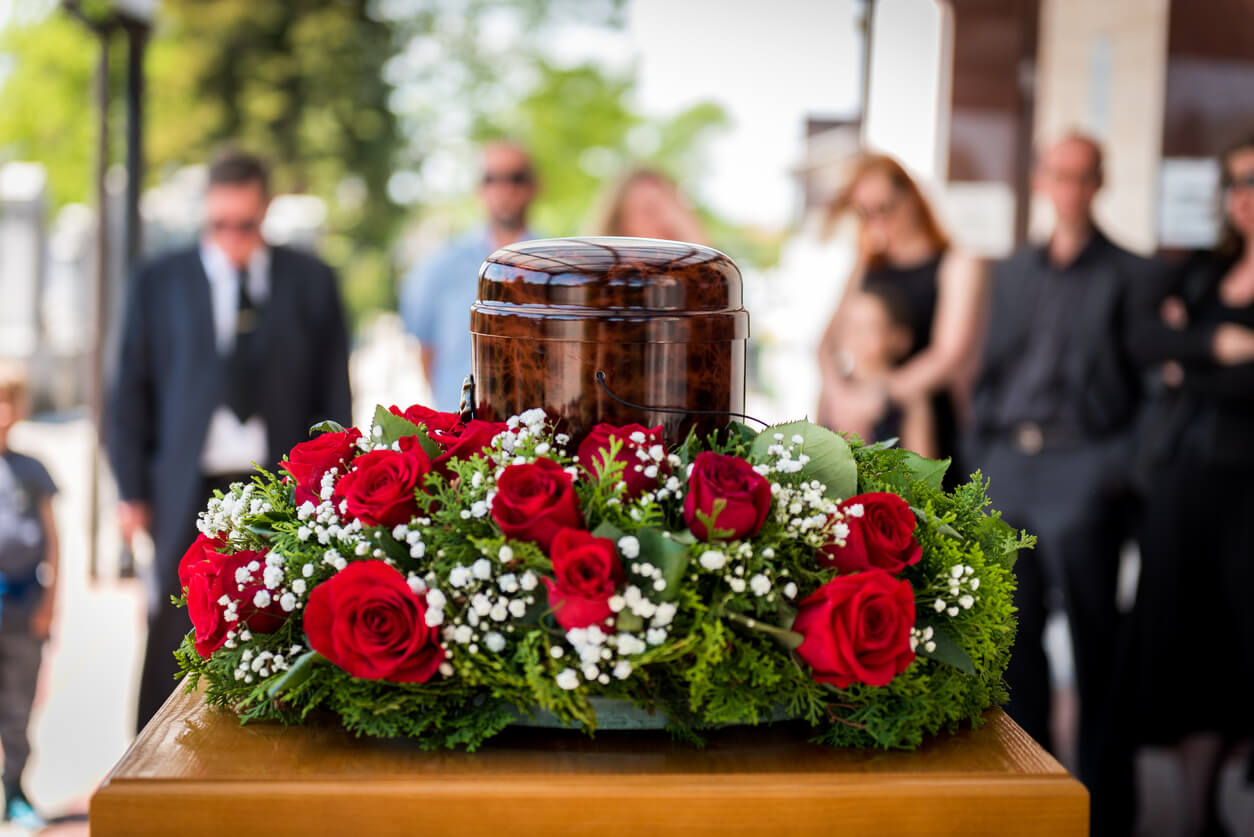Cremation Uncovered: Exploring the Process, Costs, and Key Considerations
Cremation is increasingly viewed as a practical and meaningful choice for handling the remains of loved ones. Whether driven by personal wishes, financial factors, or cultural traditions, cremation offers an alternative to traditional burial that many families find customizable and dignified. This article will break down the cremation process, discuss the associated costs, and address ethical and legal aspects of choosing cremation.

What is Cremation?
Cremation is a method of final disposition that uses heat and flame to reduce the human body to its essential elements, primarily bone fragments. These fragments are then processed into a fine, sand-like material commonly referred to as "ashes."
In the United States, cremation has gained widespread acceptance, with cremation rates surpassing 57% in 2021, according to the Cremation Association of North America (CANA). This trend can be attributed to its affordability, flexibility in memorialization, and reduced environmental impact compared to traditional burial methods.
The Cremation Process: Step-by-Step
Understanding the cremation process can provide peace of mind to families making this choice. Below is a detailed explanation:
1. Pre-Cremation Preparation
-
Legal Documentation: Proper permits, including a death certificate, are obtained before cremation. In some states, a waiting period (typically 24-48 hours) is required.
-
Body Identification: A robust identification process ensures the dignity and accuracy of cremation. Most facilities use a metal tag that accompanies the deceased throughout the process.
-
Removal of Medical Devices: Pacemakers, prosthetics, or any items that could pose a safety hazard during cremation are removed.
2. Cremation Chamber
-
The body is placed in a combustible container, such as a wooden casket or heavy-duty cardboard box, and then placed into the cremation chamber.
-
The chamber, which heats up to 1,400–2,000 degrees Fahrenheit, reduces the body to bone fragments over a 2-3 hour period.
3. Processing the Remains
-
After cooling, the bone fragments are collected, inspected for non-combustible materials (e.g., surgical implants), and processed into a fine, uniform texture.
-
The "ashes" are then placed in an urn or temporary container and returned to the family.
What Happens Before and After Cremation?
Before Cremation
-
Families often have the option of a viewing or funeral service with the body present. This can occur before the cremation takes place, allowing for traditional mourning rituals.
-
Some families choose direct cremation, where the body is cremated without a formal service. This is often the most economical option.
After Cremation
-
Families may choose to hold a memorial service with the urn present.
-
The ashes can be interred in a cemetery, scattered in a meaningful location, or kept in a decorative urn at home.
Cremation vs. Traditional Burial
When deciding between cremation and traditional burial, families often weigh costs, environmental impact, and cultural or religious preferences.
|
Aspect
|
Cremation
|
Traditional Burial
|
|
Cost
|
Typically lower (average $1,000–$3,000)
|
Higher (average $7,000–$12,000)
|
|
Environmental Impact
|
Fewer resources used, smaller land need
|
Requires land, embalming chemicals
|
|
Flexibility
|
Timing allows more planning options
|
Requires immediate arrangements
|
|
Cultural Acceptance
|
Growing across the U.S.
|
Still preferred in certain regions
|
(Source: National Funeral Directors Association, Cremation Association of North America)
How Much Does Cremation Cost?
Cremation costs vary widely depending on factors like location, services, and the cremation provider. Here’s a breakdown of typical expenses:
|
Type of Cremation
|
Cost Range
|
|
Direct Cremation
|
$500-$2,500 (most affordable)
|
|
Cremation with Service
|
$2,000-$6,000
|
|
Additional Options
|
Urns ($50–$500), memorials, etc.
|
For example:
-
In metropolitan areas, "low-cost cremation services near me" may start at $500.
-
In smaller cities or rural locations, "cremation prices in {city}" could range higher due to fewer service providers.
Families seeking affordable cremation options can compare providers for the best value without compromising quality.
Legal and Ethical Considerations
Before choosing cremation, it’s crucial to understand the legal and ethical aspects involved:
Legal Requirements
-
Most states require a waiting period (e.g., 48 hours) before cremation.
-
Documentation, including a death certificate and cremation authorization form, must be completed.
-
Some states allow family members to witness the cremation, if desired.
Ethical Considerations
-
Ensure the cremation provider is licensed and follows industry standards.
-
Discuss with family members to ensure everyone is comfortable with the decision.
-
Consider religious beliefs, as some faiths (e.g., Hinduism) embrace cremation, while others (e.g., Orthodox Judaism) may discourage it.
Exploring Cremation Services in the U.S.
Cremation services are widely available across the United States, with options ranging from full-service funeral homes to specialized cremation providers. To find "low-cost cremation services near me," families can search online directories or consult local funeral homes.
Cremation is a practical, customizable, and increasingly popular choice for final arrangements in the U.S. It offers flexibility, affordability, and environmental benefits compared to traditional burial. By understanding the cremation process, associated costs, and legal considerations, families can make informed decisions that honor their loved ones’ wishes.
References
-
Cremation Association of North America. https://www.cremationassociation.org
-
National Funeral Directors Association. https://nfda.org
-
U.S. Funeral Costs Statistics. https://www.parting.com
